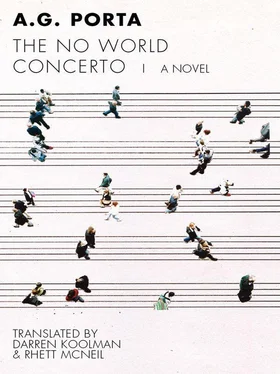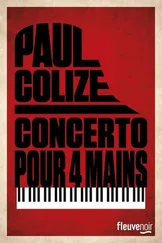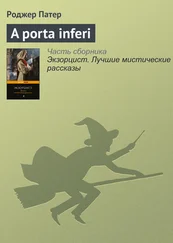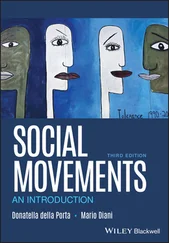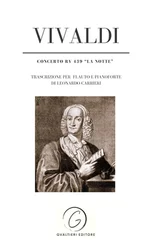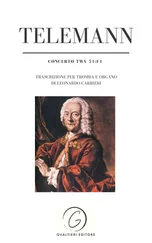The girl is practicing on the piano. In its first few measures, the brilliant composer’s work flows clearly and smoothly, although a little farther on, it segues into a rough and discordant mishmash of notes. Someone told her it’s mathematically perfect, but the girl pays no attention to the score or its mathematical properties, and focuses solely on the keys. She’s performed the No World Symphony so often now that her fingers move without hesitation, and perhaps only a few people would notice that she’s straying from the score and encroaching on new territory. Then she stops playing the piano, goes over to the table, and spreads out the sheet music for the clown’s part in Dress Rehearsal for Voice and Music Boxes . She plays a cassette that reproduces the sound of the music boxes, and checks her reflection in the bathroom mirror before beginning the recitation. She notices the horrible bags under her eyes. She takes a pill from her pocket and swallows it with a sip of water. Maybe she needs two, just in case. She recites whole verses, forgets some others, while continuing to stare at herself in the mirror, perhaps looking for something she’s been purposely ignoring until now. I shouldn’t worry about anything, she sings, almost recites, putting her own words to the music.
Then she adds a deuteragonist to the scene: You shouldn’t fight with the young conductor, she says to the reflection in the mirror. And try not to worry about the voices, about your future, your father or what his real name might be, not even about extraterrestrials or your writing. Bags under your eyes, she sneers with an actress’s hammy delivery, beautiful teenage bags under your eyes. She can’t help thinking of the screenwriter at this point. Maybe it’s because he can relate to having bags under the eyes, unlike the young conductor of the orchestra. She goes back into her room and sits on her bed, trying to write while waiting for the pill to take effect. She could go in search of Cousin Dedalus, try to uncover his real story, because she doesn’t believe what she’s been told up until now. She calls her mother and asks about him, but this proves to be a mistake. Her mother doesn’t like it when people ask about her cousin, and she assures the girl they’ve completely lost track of him. Why do you want to know? she asks. The girl wants to go in search of him but she doesn’t know where to start looking. He more than likely changed his name, in which case there’s nothing more to be said. She could just make it all up, as novelists do with their characters. But she already has her No World . So to speak. Since all she really has is the title. Writing is such an ordeal for her. Perhaps it would be easier if her book was based on a true story.
The girl spends a few hours canceling her appointments in the neighboring country’s capital. She’s ostensibly traveling to her native city for a TV interview and to perform a concert. In reality, her trip has taken on a new significance, because she’s going in search of an image, a clue perhaps, some vestige of her lost cousin Dedalus. She signs some autographs at the airport while waiting in the VIP area. The next shot shows her alighting from a car in front of her home and asking the chauffeur to wait. We then see her walking around a spacious, luxurious apartment very few families could afford. The floor is completely empty, perhaps because the servants are on vacation. Then we see her looking through a photo album. There are pictures of the girl, her father and mother, and various other relatives and friends. She glances over the pictures one at a time, pausing at her favorite ones, the ones she links to pleasant memories: pictures of the garden of her old house; of her first attempts at playing the piano; of her father when he was younger. In a panoramic shot of a swimming pool, she’s shown next to the brilliant composer, who was only known as the talented boy back then. She reckons it was taken about ten years earlier because they’re only little kids. It’s a charming photo: both their faces are covered in chocolate, and neither is wearing a school uniform. She remembers how strange he looked without a school uniform, without his navy-blue blazer, gray pants, white shirt, and necktie. There are also pictures of her mother when she was younger. She looks happy; much different from the way she looks today. While leafing through the album, the girl recites some verses from the piece they’ve entitled Dress Rehearsal for Voice and Music Boxes . She plays the clown, but uses her own lyrics, the ones that tell her not to care about her father’s real name, or worry about herself; words that remind her not to fight with the young conductor, and to stop fretting about her writing. There’s one photo she particularly detests, in which she’s posing with a doll that was quite popular at the time, before she developed her aversion for dolls. All of a sudden, she finds what she was looking for: a snapshot of her cousin Dedalus, taken before he fled to the neighboring country’s capital. He’s posing on a pier she assumes is somewhere in her native city, and there’s a boat behind him whose name she can’t quite make out. He looks young in it, but the most striking thing about him is his face, it is the face of the man she keeps seeing in the neighboring country’s capital. The man she saw sitting at the bar in the dance club, and standing in front of the theater where she rehearses. She’s certain he’s her cousin, only he looks a lot older now. The girl strains to read the name of the boat behind him, but gives up because she’d need a magnifying glass. Perhaps she’s reading too much into it — that the boat betokens his intention to embark on a journey. There’s also a passport-sized photo, and another of him sitting beside the girl’s mother at some sort of family reunion. The screenwriter leaves his glasses on the desk and lights a cigarette, taking a deep drag as he fixes his gaze on the building across the street. He leans back in the chair and contemplates the unfeasibility of matching up the time it takes to show so many images with the speed at which the girl would tend to flip through the album. In any case, he should have enough time to show the most important ones. Perhaps he need only show a few. His likens his writing process to the way some painters work, marking off areas of the canvas before drawing their preliminary sketches, the figures gradually coming to life as they take on more definite features. He extinguishes his cigarette, puts his glasses back on, and turns toward the typewriter. For some reason, the girl’s convinced there are no such things as coincidences, despite being unable to understand why she keeps running into the man she presumes is her cousin. She goes out to take a hurried look into her mother’s study, ferreting frantically through her correspondence and the agendas she keeps in meticulous order, because the girl feels that the photographs are a testament of the past, reminding her of certain moments in her life, urging her to discover more. It’s possible her cousin doesn’t sign his correspondence with his own name or the pseudonym Dedalus, so she pays close attention to any letter with a sender or addressee she doesn’t recognize. She’s running out of time, so she starts focusing on specific dates. She answers a call on the landline. The chauffeur is getting nervous because they’re going to be late. Some of the letters are quite strange. One is a donation request for an ostensibly noble cause, but the girl thinks it’s probably a scam. But then she’s suddenly taken aback by the following line: “Since our genetic code reveals that all living things have a common ancestry, it might lead one to believe that life on Earth was seeded by extraterrestrial engineers.” She searches in vain for her mother’s response. She gets the impression she’s missing something crucial, but intuits she won’t find anything else pertaining to her cousin, so decides to put an end to the investigation. Before leaving the apartment, she takes out a black dress from the back of a closet. She can’t give a concert in a white T-shirt and jeans. She looks through the mail and listens to a message on the answering machine. Once again, the Principal of the Scholastic Institute wants to speak to the girl’s mother. She erases the message.
Читать дальше
